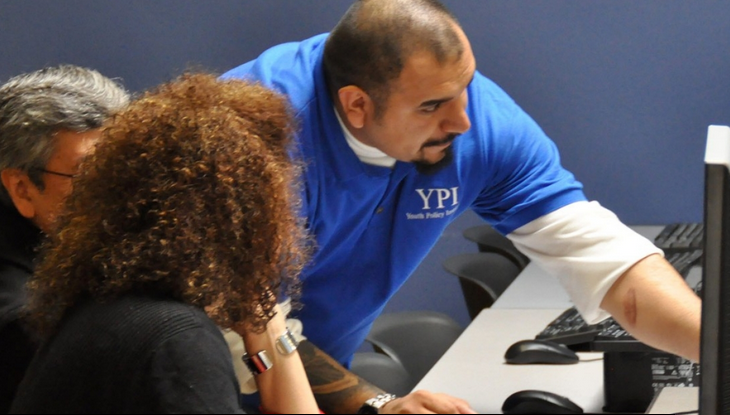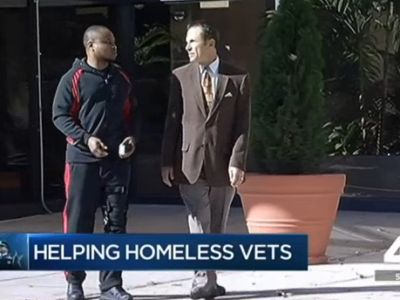
LOS ANGELES — At the Youth Policy Institute here in an East Hollywood strip mall, low-income moms study for the GED while their kids are in day care in another room. One Hispanic immigrant mother takes her school-age children for after-school tutoring and computer classes.
In another corner of the center, a poster trumpets the progress of the Our Families Save program, which teaches the poor the importance of good credit. It encourages them to open a savings account by matching funds if they maintain it for a year. About 1,300 families are participating so far.
This one-stop shop for families in need requires partnerships among umpteen city, state and federal agencies, schools, businesses and nonprofit groups. But until now, agencies focused on one area — housing agencies on housing alone, education departments on schools alone, health agencies on medical care alone.
Now all these resources are coming together under a community quarterback, and the Youth Policy Institute is one. It’s a common-sense concept that seems so simple, it’s a wonder it has taken this long to become official.
“It’s a paradigm shift in how we’ve approached our work in previous decades,” said Nancy Andrews, president and CEO of the Low Income Investment Fund in San Francisco, who put forth the idea in the book “Investing in What Works for America’s Communities.”
“In many ways, this is the vision that actually returns to the original vision of the War on Poverty,” she added.
The result is Partners in Progress (PIP), a national initiative created by Andrews’ group and the Citi Foundation. It has provided $250,000 grants to 13 organizations in California, Texas, Florida, New York, Connecticut, Illinois and the District of Columbia.
The 13 quarterbacks are in pursuit of one goal: Spurring economic progress in poor neighborhoods.
“The idea of a quarterback — some people call it orchestra conducting — is to harmonize resources,” Andrews said. “If we are successful with this, others in the rest of the country will emulate.”
Going viral
It’s hard to imagine anything going viral in the world of community development, but PIP has.
“We released a YouTube video on the program when it was first announced, and within a week we got 10,000 views,” Andrews said.
And earlier this year, Federal Reserve Chairwoman Janet Yellen cited the book, which Andrews wrote with the Federal Reserve Bank of San Francisco, for its promising ideas and advocated the community quarterback model.
“It’s a unique way of doing things,” said Benjamin Faust, manager of data and strategy at the Brownsville Partnership in Brooklyn, New York, an initiative from the national nonprofit Community Solutions. “Usually an organization comes around to focus on one thing in particular.”
His group will use PIP to focus on creating jobs for residents of Brownsville, where 14 percent of its 60,000 residents of working age are officially unemployed and an additional 45 percent have given up looking for work.
“We’re going to implement a 5,000-job campaign in Brownsville,” Faust said, by rallying employers, city agencies and other groups.
“It wasn’t necessarily the lack of services preventing Brownsville from getting better. What was lacking was cohesion. One resident would go to four or five offices in one day to get services.”




